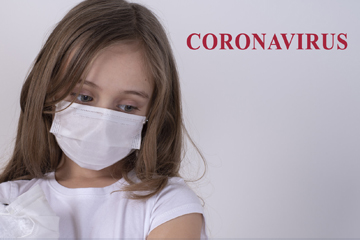As the COVID-19 pandemic worsens across the nation, numerous spots of business – schools, offices, the New York stock exchange, theaters, wellness studios, clothing and beauty stores, have all been requested to temporarily shut down and millions of people are being asked to self-quarantine in order to safeguard themselves and prevent the disastrous spread of infection. However, during this period, it is important to pay as much attention to your mental health just as your physical health.
The SARS-CoV-2 virus that originated in Wuhan City of China, causes severe respiratory disease. Coronavirus was declared a global emergency on January 31, 2020 and announced as a pandemic on March 11, 2020 by the World Health Organization (WHO) because of its high mortality rate. With more than 25,000 positive tests of Covid-19 and 210 deaths from the virus reported in the United States alone, this outbreak is serious and is quickly spreading to all parts of the world. Since no immunizations are available as of now to prevent coronavirus sickness, the ideal approach is to abstain from being exposed to this virus. For that, the U.S and many other countries have announced temporary lockdown to ensure social distancing. However, the uncertainty and the constant depressing news about the pandemic can be stressful for many, and take a toll on peoples’ mental health, particularly those already living with conditions like anxiety and Obsessive-Compulsive Disorder (OCD). Many organizations have come forward offering tips on how to tackle one’s mental health during this outbreak and WHO is one among them.
Practical Tips for Coping with the Pandemic
As we all face uncertainty and are confused about this pandemic, there are measures we can take to stay calm. The tips include:
- Limit your exposure to news and social media because there is a lot of misinformation swirling around. Stay informed of COVID-19-related news and updates by sticking to trusted sources of information such as the Centers for Disease Control and Prevention (CDC), World Health Organization (WHO), John Hopkins’ Coronavirus Resource Center, and the U.S. Food and Drug Administration (FDA).
- Cut back the amount of time you spend reading or watching things which aren’t making you feel better, and perhaps decide on a specific time to check in with the news.
- Keep things in perspective and take all the precautions by washing your hands frequently and practicing social distancing.
- Social distancing doesn’t mean that you should not stay connected with family and friends. You can maintain these connections without increasing your risk of getting the virus – you can talk on the phone, text or chat with people on social media platforms. Maintaining social networks can foster a sense of normalcy and provide valuable outlets for sharing feelings and relieving stress.
- Remind yourself that most people who contract COVID-19 will only experience mild symptoms, as the American Psychological Association (APA) points out. They say work is being done to help people who may be more vulnerable to the coronavirus, such as senior citizens and those with underlying health conditions.
- Practice deep breathing or meditation which are great ways to alleviate stress and anxiety.
- Engage in activities that distract you from current events.
- Do practice self-care activities like eating healthy, staying hydrated, getting adequate sleep and regular physical activity.
- Engage in indoor physical activities as it can help ease anxiety and improve your mood by producing stress-relieving hormones called endorphins.
- If you have negative thoughts and beliefs, write down positive statements right when you wake up or before going to bed. This can be very powerful in rewiring your negative mindset.
- Communicate with your kids because it’s important to take care of your kids’ mental and emotional health as well as yours. Be honest and open with your children and give them enough space to process their feelings.
- Be kind to yourself and others.
- Sharing the actual facts about COVID-19 and understanding the actual risk to yourself and people you care about can make this outbreak and its impact less stressful. According to the CDC, when you share accurate information about COVID-19 you can help make people feel less stressed and allow you to connect with them.
However, if your mental health worsens and you feel it is impairing your ability to function, then seek professional help from an experienced mental health professional at the earliest. Don’t forget that with COVID-19, you are not alone in how you are feeling. Coping with the stress will make you, the people you care about, and your community stronger.
